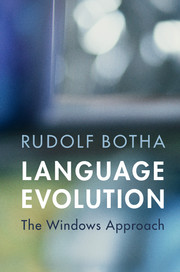10 - Modern music and language
from Part IV - Abduction windows
Published online by Cambridge University Press: 05 March 2016
Summary
Language: ‘a perpetual Orphic song’
The issue raised in this chapter is the window potential of the view that language and music are related in striking ways. As noted by Rita Aiello (1994: 40ff.), Mireille Besson and Daniele Schön (2001: 270–1), Steven Brown (2001: 272), Bryan Levman (1992: 148ff.), Aniruddh Patel (2008: 3–4) and others, this view has been held in one form or another by scholars of diverging disciplinary orientations: anthropologists, biologists, cognitive scientists, linguists, musicologists, philosophers and sociologists, to mention only some. Plato, Jean-Jacques Rousseau, Charles Darwin and Ludwig Wittgenstein are notable members of this group of scholars. And then there are also poets such as Shelley, whose lines
Language is a perpetual Orphic song,
Which rules with Dædal harmony a throng
Of thoughts and forms, which else senseless and shapeless were
Prometheus, iv. 400are the source of the heading for this section.
From the perspective of this book, it is interesting that scholars working in various fields have attached evolutionary significance to putative similarities between language and music. And, more specifically, that they have taken such similarities as a basis from which to draw inferences about the origin of language and music. The present chapter is concerned with those inferences in which the conclusion takes the form of a hypothesis which may be generically stated as:
The musical precursor hypothesis
Language and music had a common, musical, precursor.
This hypothesis is the outcome of abductive reasoning: from data about similarities between language and music (i.e., a phenomenon requiring an explanation), it is inferred that language and music had a common precursor (i.e., a hypothesis which provides an explanation). Similarities between language and music have, accordingly, been used as a window – an abduction window – on the evolution of language. I will call this the ‘music window’. It has been used by a range of scientists, including Charles Darwin (1871), Ellen Dissanyake (2005), Harry Jerison (2001), Otto Jespersen (1922), Dean Falk (2001), Tecumseh Fitch (2010a, 2013), Bryan Levman (1992), Frank Livingstone (1973), Nubuo Matsaka (2007), Björn Merker (2001), Steven Mithen (2005) and Bruce Richman (2001). Darwin, we will see below, has been credited with creating the prototype of the music window.
- Type
- Chapter
- Information
- Language EvolutionThe Windows Approach, pp. 199 - 229Publisher: Cambridge University PressPrint publication year: 2016

